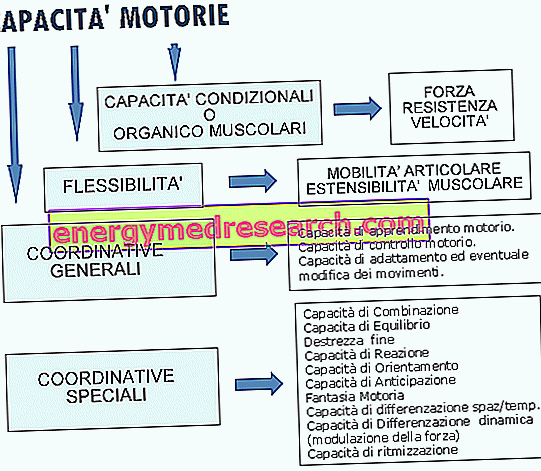Definition
The mouth ulcers, also called oral ulcers, are painful lesions of the mucous membrane of the oral cavity that normally persist within a short period of time, ranging from a few days to a couple of weeks; mouth ulcers can regress even without specific treatments or drugs; nevertheless it is possible to apply locally medicines to speed up healing.
Causes
The etiopathological agent implicated in the onset of mouth ulcers is not known: medical statistics show that these oral sores can affect anyone, including those in full health. However, some risk factors are identified: abandonment of smoking, allergies (rare), hormonal alterations (eg menopause), iron deficiency anemia, vitamin deficiency (especially vit. B9), celiac disease, HIV, injuries following daily tooth cleaning, Crohn's disease, genetic predisposition, stress.
Symptoms
The mouth ulcers determine a circumscribed symptomatology to the oral cavity: the ulcers are painful, reddened sores, whose appearance is anticipated by a perception of burning and stinging in the area. Only rarely, mouth ulcers extend to the genital mucous membranes.
Information on Afte in the mouth - Medications for the treatment of Aphta are not intended to replace the direct relationship between health professional and patient. Always consult your doctor and / or specialist before taking Afte in the mouth - Medicines for the treatment of Afte.
drugs
Since the mouth ulcers tend to regress spontaneously in the span of a few days, in general we tend to reject the pharmacological therapy option, leaving the lesion to run its course. Clearly, when the onset of mouth ulcers is a warning light of a pathology, it is the patient's duty to go to the doctor for diagnostic assessment, treating - when possible - the disease that arises there at its origins.
In order not to aggravate the oral sore, it is advisable to pay particular attention to cleaning the teeth: a particularly energetic use of the toothbrush can, in fact, accentuate the lesion, break the sore and prolong the healing time.
From the statistics we can understand how the appearance of mouth ulcers is heavily influenced by the lack of some vitamins (especially folic acid) and minerals, such as zinc and iron (especially): when mouth ulcers are subject to such dietary deficiencies, it is recommended to integrate the power supply with the elements in defect.
In cases where mouth ulcers become particularly painful, it is advisable to rinse the oral cavity with specific mouthwashes or to apply corticosteroid-based pastes locally: the powerful anti-inflammatory effect of these drugs (TO BE USED WITH MODERATION) seems to bring extraordinary results, especially in terms of healing speed. It should be remembered, however, that the use of corticosteroids for the treatment of mouth ulcers is able to relieve pain and accelerate the healing of wounds, although it does not have any beneficial effect on reducing the frequency of relapses.
Only in extreme cases, in which mouth ulcers grow disproportionately in terms of size and number, is it possible to administer drugs with immuno-modulating activity.
The drug therapy described below must be followed only in the event of seriousness.
- Chlorhexidine (eg. Disinfene cream, Golasan mouthwash): in the form of mouthwash, this drug helps to reduce pain and speed healing. It seems that rinses with this mouthwash are an effective form of prevention of infectious ulcers of the oral cavity; however, chlorhexidine does NOT reduce the frequency of relapses. It is recommended to rinse the oral cavity with 15 ml of product, twice a day, after daily cleaning of the teeth with toothpaste, brush and dental floss. It is also advised to keep the chlorhexidine-based mouthwash in the mouth for at least 30 seconds, before expelling it. The drug can create brown spots on the surface of the teeth, easily removable: since a similar therapy increases the chances of staining the teeth, it is advisable to avoid taking tea, coffee or red wine during the treatment period, so as not to make more obvious the spots. DO NOT swallow the mouthwash.
- Betamethasone tablets to dissolve (eg Betnesol, Bentelan): the drug belongs to the class of corticosteroids and is used in therapy for particularly inflamed and painful oral sores, to accelerate healing. The drug is available in tablets to be placed directly on the lesion, until complete dissolution. When the drug is used for the first painful symptoms, the oral ulcer can be cut off in the bud, avoiding the rush. Apply a tablet on the mouth sores, 4 times a day, until the symptoms are remitted. For children; the therapy should not last more than 5 days.
- Hydrocortisone (eg Cortison CHEM, Hydrocouple A ECB): this drug belongs to the class of corticosteroids; in case of mouth sores, it should be applied topically, in the form of cream or dental paste. The product is useful for reducing inflammation. It is recommended to apply it directly on the inflamed gingiva, two or three times a day, after meals and before going to sleep.
- Fluocinonide (eg Topsyn gel, lotion, ointment): the drug is a corticosteroid topically applied to reduce pain and inflammation of mouth ulcers. As a 0.05% gel, apply the drug directly on the mouth to reduce pain.
- Sodium carboxymethyl cellulose (eg Orahesive, Orabase): the drug, available in the form of paste or powder, should be applied directly to oral sores, to reduce the sensation of pain, burning and discomfort.
- Benzidamine (eg Difflan, Tantum Verde): in the form of an oral spray or cream, the drug (class: FANS) should be sprayed / applied directly on the mouth sores, due to its mild analgesic effect.
- Choline salicylate (eg Bonjela): DO NOT use in children under 12-16 years, a similar use could favor the appearance of Reye's syndrome. Available in the form of a gel or paste to be applied at the lesion. For the dosage: consult a doctor.
- Tetracycline (tetracycline hydrochloride capsules): the antibiotic drug is indicated for treating large mouth ulcers: it is recommended to dissolve the content of one capsule in a tablespoon of water, thus obtaining a suspension of tetracycline at 125 mg / ml. The preparation should be kept in the mouth for a couple of minutes and then expelled. Do not swallow. Do not administer to children under the age of 9: the pharmacological suspension can stain the teeth, which is still in the formation phase.
- Lidocaine the drug is a local anesthetic whose application favors an immediate relief from the burning pain that accompanies oral aphta. The drug is also available as a solution for frequent oral rinses: a dose of 5 ml of 2% viscous lidocaine is recommended. Rinses must be carried out at least 3 hours before a meal.
Other practical remedies for mouth ulcers :
parallel to the pharmacological therapies for the treatment of mouth ulcers, it is recommended to follow some simple tricks to prevent their formation or to accelerate healing:
- Use a soft bristle toothbrush
- Drink with a straw (to prevent liquids from coming into contact with mouth ulcers)
- Change medication when it is suspected that this is the cause of the canker sores
- Limit salty, spicy and acidic foods, which worsen the pain and discomfort created by mouth ulcers.



